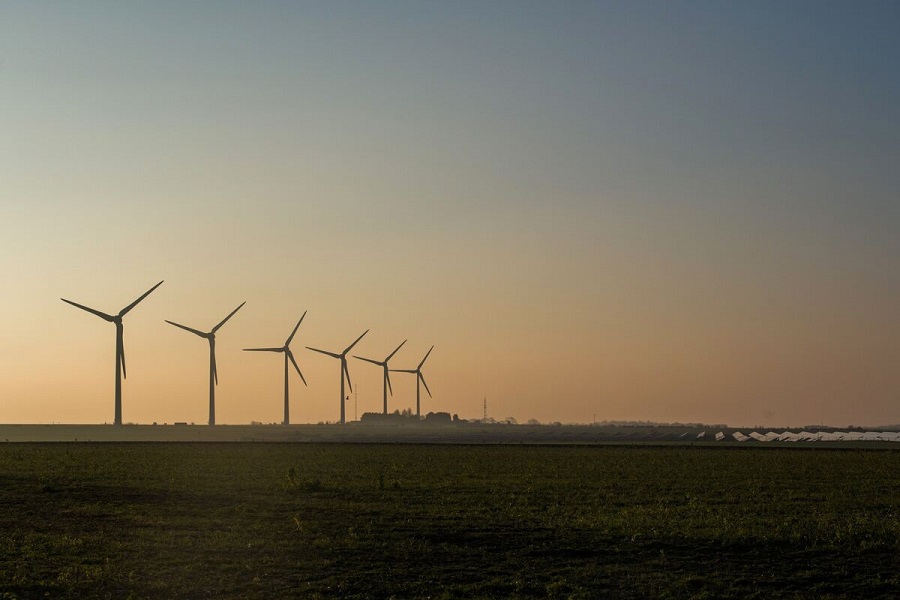11 Dec 2024

Tired Earth
By The Editorial Board

The law significantly raises the EU’s renewable energy targets, requiring 42.5% of EU energy to be renewable by 2030.
The share of renewables in the EU’s energy mix currently stand at 22.1%, according to EU statistics, which means roughly doubling that share by 2030 – mainly with additional wind and solar capacity.
The revised directive also adds renewable energy targets for buildings and seeks faster permitting processes for wind and solar projects with the introduction of dedicated “acceleration areas” for renewables.
Under the new directive, national authorities will have 12 months to approve or reject new solar and wind farms, if they are located in a renewable “acceleration area”. Outside those, the process should not exceed 24 months.
In the transport sector, renewables deployment should lead to a 14.5% reduction in emissions by 2030, by using a greater share of advanced biofuels and a more ambitious quota for renewable fuels of non-biological origin, such as hydrogen.
In addition, under the principle of ‘Positive silence’, investments in renewables will be considered approved in the absence of administrative feedback.
“This directive is evidence that Brussels can be unbureaucratic and pragmatic,” said Markus Pieper, a German lawmaker who was the Parliament’s speaker on the proposal.
“We have designated renewables as an overriding public interest, streamlining their approval process. Our focus encompasses wind power, photovoltaics, hydropower, geothermal energy, and tidal currents. Biomass from wood will remain classified as renewable energy.”
Argument over nuclear
The law faced a tough passage through negotiations among EU countries’ governments, and only won support after France obtained an exemption allowing countries with a decarbonised electricity mix – such as nuclear – to meet lower requirements for renewable hydrogen.
The European Parliament voted on Tuesday to pass the law with a large majority – 470 lawmakers voted in favour, 120 against and 40 abstained.
EU member countries must also green light the final bill before it enters into force – a process that usually waves through pre-agreed deals with no changes.
“It’s a very important signal that the Green Deal is moving forward,” French EU lawmaker Pascal Canfin said, referring to the EU’s overarching climate change plan to cut its net greenhouse gas emissions to zero by 2050.
EU countries and lawmakers had agreed a deal on the renewable energy law back in March which was supposed to be final, but was held up by countries seeking greater recognition of nuclear power.
EU countries okayed the deal in June, after Brussels offered written assurances that it would consider exempting certain ammonia plants from renewable fuel targets – allowing them to run on nuclear-based fuels instead.
France says Europe’s shift to green energy will require hydrogen produced from both renewables and nuclear, and EU laws should support both.
Opponents including Germany and Spain had argued adding nuclear to the renewable energy law would undermine efforts to massively expand wind and solar.
The tougher targets – which include specific goals to increase renewable use in transport and industry – aim to spur the huge investments needed to meet Europe’s green goals.
Europe got 22% of its energy from renewable sources in 2021, the latest year for which official EU data are available.
Reactions
The vote on the renewable energy directive was welcomed by the Principles for Responsible Investment (PRI), an international organisation with members representing US$120 trillion of assets.
“Industry, transport, and heating and cooling in buildings all need to shift to net-zero emission energy sources like solar and wind. Faster permitting will help accelerate the transition,” PRI said in a statement.
However, PRI regretted that biomass was not restricted further. “Forests are needed for biodiversity, for their carbon storage potential and other ecosystems services, and for high-value, low-quantity material use in the net-zero bioeconomy. The RED III review in 2026 should strengthen binding sustainability criteria for Member States and exclude tax benefits or other support for using biomass for heating and power generation,” PRI said.
CEE Bankwatch, a network of environmental organisations in central and eastern Europe, also had mixed feelings.
“The changes give a much-needed boost to small-scale solar and heat pumps, but undermine existing environmental legislation. Some renewables will be allowed to skip crucial environmental assessments and more damaging projects will be allowed in the EU’s protected natural areas,” it warned.
Source : euractiv.com
Comment